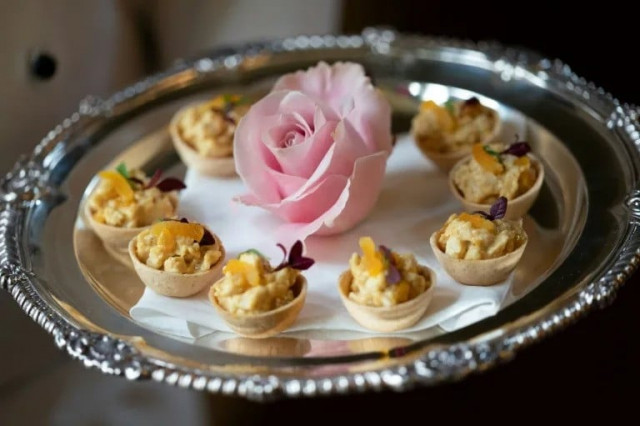Fit for a king... and queen: UK royals serve up 'Coronation Quiche' recipe
Seven decades ago, a lightly curried chicken dish was created for Queen Elizabeth II's crowning

Move over Coronation Chicken, there's a new culinary concoction with UK royal approval for the crowning of King Charles III and Queen Consort Camilla -- Coronation Quiche.
Seven decades after the lightly curried chicken dish was created for Queen Elizabeth II's crowning, her son on Monday unveiled the recipe for a baked savoury tart to mark his coronation next month.
Chosen with his wife, Camilla, who will also be formally crowned on May 6, the quiche was selected "in celebration of Coronation Big Lunches" occurring over the long weekend of events, Buckingham Palace said.
The lunches, which aim to bring neighbours and communities together to celebrate the country's first coronation in 70 years, will be staged nationwide, primarily on Monday, May 8.
Camilla has been the patron of the associated Big Lunch initiative since 2013.
In keeping with Charles' green environmental credentials, the new Coronation Quiche does not contain meat but instead features spinach, broad beans and tarragon.
The palace, which unveiled the recipe online, described it as "a deep quiche with a crisp, light pastry case and delicate flavours".
"Eat hot or cold with a green salad and boiled new potatoes -- perfect for a Coronation Big Lunch," it added, also releasing a video of a palace chef making the savoury dish from scratch.
Coronation Chicken -- a bright yellow dish of cold chicken in a curry cream sauce with a well-seasoned dressed salad of rice, green peas and mixed herbs, served cold -- has become a British culinary classic.
It was created in 1953 by Constance Spry, then director of Le Cordon Bleu culinary school in Winkfield, near Windsor, to appeal to the tastes of guests from around the world.
She had been tasked with putting on a banquet for foreign dignitaries after Elizabeth's coronation on June 2, 1953.



















COMMENTS
Comments are moderated and generally will be posted if they are on-topic and not abusive.
For more information, please see our Comments FAQ